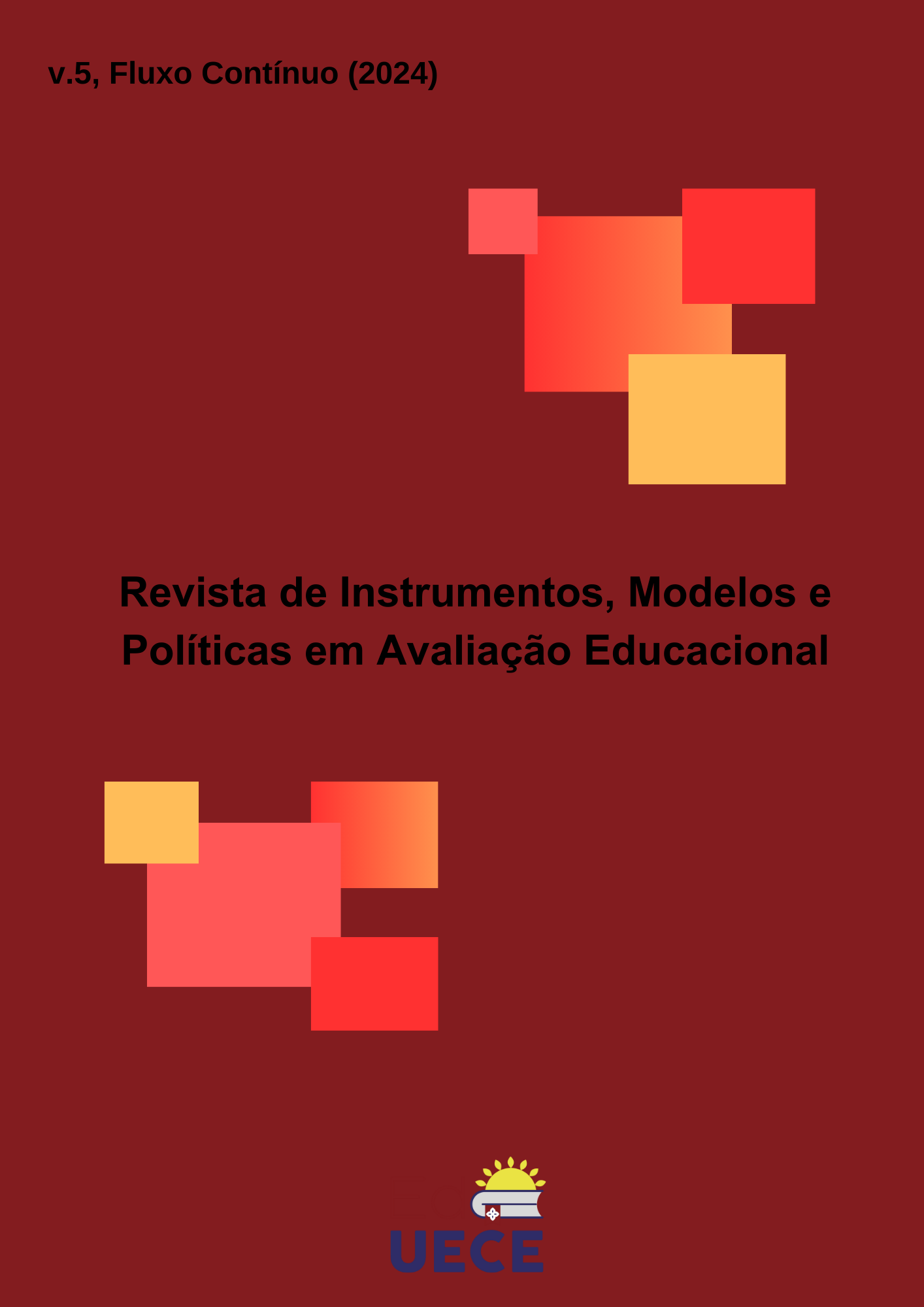A avaliação no Programa de Formação Docente do GPEHM: influências na construção do conhecimento matemático
DOI:
https://doi.org/10.51281/impa.e024012Palavras-chave:
Avaliação Educacional, Formação Docente, Extensão UniversitáriaResumo
A formação de professores que ensinam matemática tem sido uma temática constante de pesquisa em Educação Matemática, compreendendo-se que a articulação entre ensino, pesquisa e extensão é essencial para a promoção de conhecimentos necessários à docência. Desse modo, o Grupo de Pesquisa em Educação e História da Matemática (GPEHM), desenvolveu o Programa de Formação Docentes (PFD), que oferta cursos de extensão universitária para professores que ensinam matemática em formação inicial ou continuada. Assim, essa pesquisa objetiva compreender o papel das ações avaliativas desenvolvidas nos cursos de extensão promovidos pelo PFD/GPEHM para a percepção da construção do conhecimento matemático. Para tanto, utiliza-se uma abordagem qualitativa e de procedimentos da pesquisa documental. Com isso, observou-se que são utilizadas avaliações nas modalidades diagnóstica, formativa e somativa, que possibilitam o conhecimento das necessidades dos docentes e permitem a construção e a ressignificação de conhecimentos matemáticos.
Métricas
Referências
ALENCAR, Livia Bezerra de. A construção da escala de cordas a partir do sector de Thomas Hood (1556-1620) para a compreensão de aspectos geométricos na formação inicial de professores. 2023. 96 f. Trabalho de Conclusão de Curso (Graduação em 2023) – Universidade Estadual do Ceará, Fortaleza, 2023.
BALL, Deborah Loewenberg; THAMES, Mark Hoover; PHELPS, Geoffrey. Content knowledge for teaching: What makes it special?. Journal of teacher education, v. 59, n. 5, p. 389-407, 2008.
BICUDO, Maria Aparecida Viggiani. Pesquisa Qualitativa e Pesquisa Qualitativa segundo a abordagem fenomenológica. In: BORBA, Marcelo de Carvalho; ARAÚJO, Jussara de Loiola. (org.). Pesquisa Qualitativa em Educação Matemática. Belo Horizonte: Autêntica, 2019. Cap. 4. pp. 111 – 124.
BRASIL, Ministério da Educação. Base Nacional Comum Curricular. Brasília: MEC/SEB, 2018.
CARRILLO-YAÑEZ, José; CLIMENT, Nuria; MONTES, Miguel; CONTRERAS, Luis C; FLORES-MEDRANO, Eric; ESCUDERO-ÁVILA, Dinazar; VASCO, Diana; ROJAS, Nielka; FLORES, Pablo; AGUILAR-GONZÁLEZ, Álvaro; RIBEIRO, Miguel; MUÑOZ-CATALÁN,Cinta.The mathematics teacher’s specialised knowledge (MTSK) model. Research in Mathematics Education, v. 20, n. 3, p. 236-253, 2018.
FIORENTINI, Dario; LORENZATO, Sergio. Investigação em Educação Matemática: percursos teóricos e metodológicos. Campinas: Autores Associados, 2012.
HOFFMAN, Jussara. Avaliação, Mito & Desafio: uma perspectiva construtivista. Porto Alegre: Editora Mediação, 2003.
PEREIRA, Ana Carolina Costa. Conhecendo a história do GPEHM e sua contribuição para a Educação Matemática no Ceará. In: PEREIRA, Ana Carolina Costa (org.). Ensino e História da Matemática: enfoques de uma prática. Fortaleza: Eduece, 2020. Cap. 1. p. 15-39.
PEREIRA, Ana Carolina Costa; BATISTA, Antonia Naiara de Sousa; OLIVEIRA, Gisele Pereira. O Programa de Formação Docente do GPEHM/UECE e sua contribuição para as atividades extensionistas. In: CUNHA, Juliene Rezende et al (org.). Atividades de extensão inseridas no currículo: contribuições sobre o fazer pedagógico. Recife: Edupe, 2022. Cap. 10. p. 156-175.
RIBEIRO, Pedro Henrique Sales. Um estudo da operação de multiplicação por meio da manipulação do promptuario de John Napier por licenciandos em matemática da UECE. 2023. 86 f. Trabalho de Conclusão de Curso (Graduação em 2023) – Universidade Estadual do Ceará, Fortaleza, 2023.
RIBEIRO, Pedro Henrique Sales.; PEREIRA, Ana Carolina Costa. Proposta de atividade envolvendo multiplicação a partir da manipulação do Promptuario para a formação de professores. Revista de Instrumentos, Modelos e Políticas em Avaliação Educacional, v. 4, p. e023021, 2023.
SANT’ANNA, Ilza Martins. Por que avaliar? Como avaliar?: critérios e instrumentos. Petrópolis: Vozes, 2001.
SÁ-SILVA, Jackson Ronie; ALMEIDA, Cristóvão Domingos de; GUINDANI, Joel Felipe. Pesquisa documental: pistas teóricas e metodológicas. Revista Brasileira de História & Ciências Sociais, [S. L.], p. 1-15, jul. 2009.




